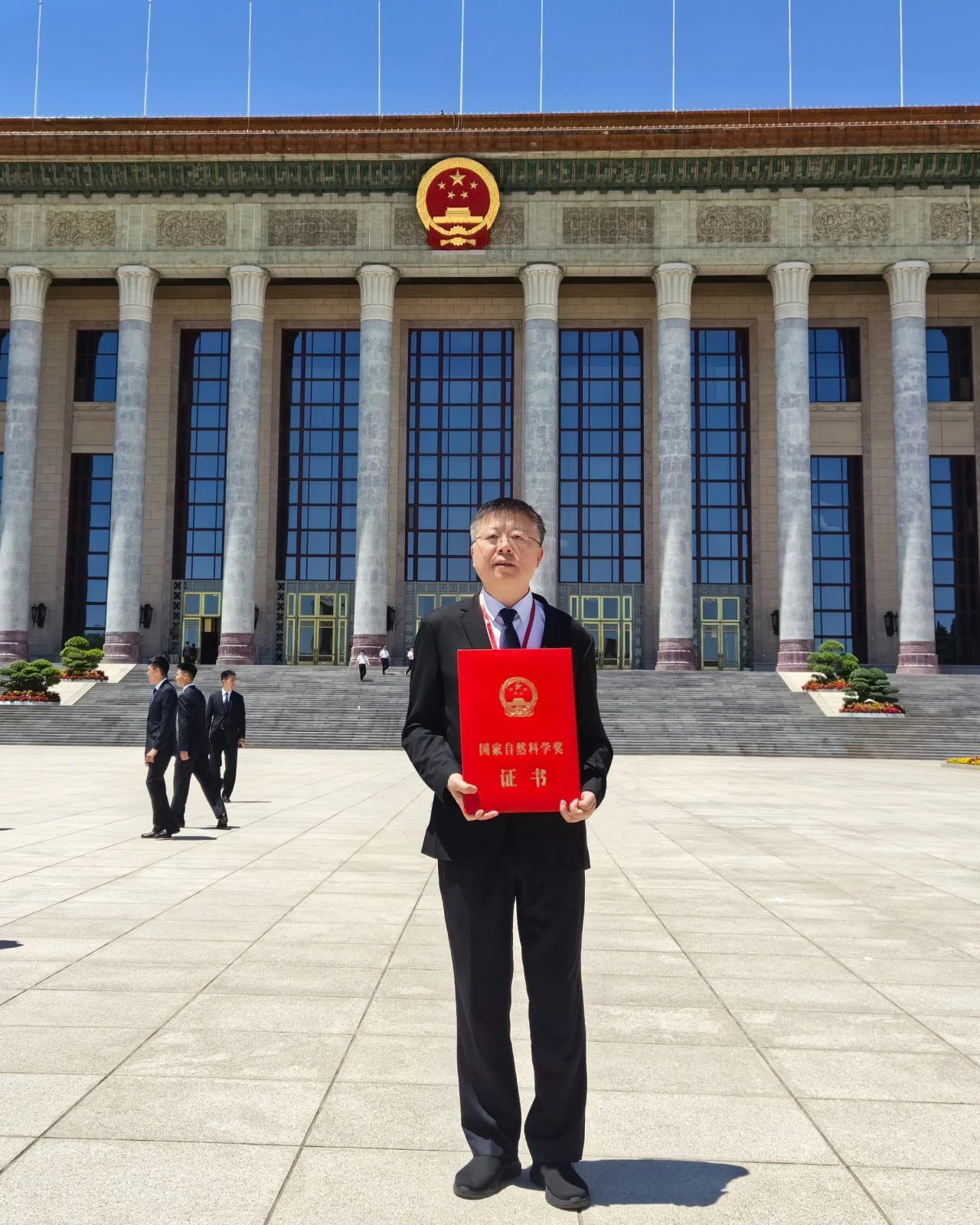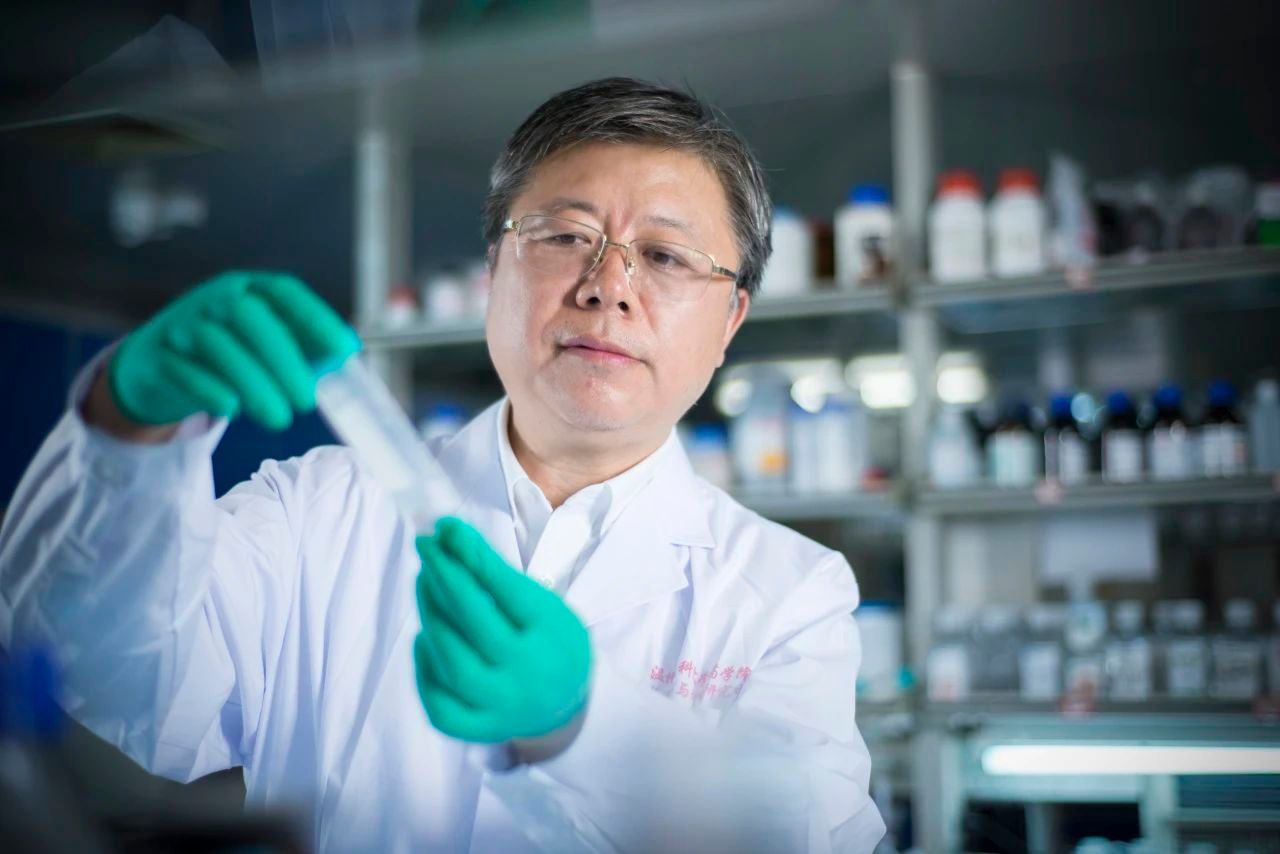- Second Prize of National Natural Science Award! WMU Professor Li Xiaokun’s team achieves historic breakthrough!
- Author:News Center, Department of Technology, School of Pharmaceutical Sciences Date:July 1, 2024

A meeting conflating the National Science and Technology Conference, the National Science and Technology Award Conference, and the general assemblies of the members of the Chinese Academy of Sciences and the Chinese Academy of Engineering was held in Beijing on the morning of June 24th. President Xi Jinping presented China's top sci-tech award and delivered an important speech.
The research project "New Functions and Mechanisms of FGFs in Regulating Glucose and Lipid Metabolism" led by Professor Li Xiaokun, an academician of the Chinese Academy of Engineering and President of Wenzhou Medical University, won the second prize of the National Natural Science Award and received commendations from the CPC Central Committee and the State Council. This marks the first time Wenzhou Medical University has won the second prize of the Natural Science Award. The research team includes Li Xiaokun, Xu Aimin, Huang Zhifeng, Lin Zhuofeng, and Li Huating, from Wenzhou Medical University, University of Hong Kong, and Shanghai Sixth People's Hospital.

In earlier studies, Li's team observed that the absence of FGF21 in experimental mice led to metabolic abnormalities, such as obesity and fatty liver disease. Moreover, the administration of FGF21 medication to diabetic mice resulted in steady improvements in relevant indicators of disease.
The in-depth research by the team unveiled the vital role of "adiponectin", which can lower blood sugar and cholesterol. However, there is a "prerequisite" for the secretion of adiponectin. Its functionality relies on its combination with a specific membrane protein called Klotho, present in fat and liver tissues.
In the latest advancements, the team found that a single administration of FGF medication through the central nervous system or nasal cavity in diabetic models could maintain stable blood sugar levels for more than four months. The relevant research result was published in the prestigious international journal Cell Metabolism in mid-2023.
At present, four long-acting FGF21 variants are undergoing clinical trials. Among them, the ultra-long-acting FGF21 jointly developed by the team and Anyuan Biotechnology is the only fully humanized FGF21 variant with C-terminal Fc fusion in the world. The variant has an in vivo circulating half-life of 11 days, which is nearly 60 times longer than that of the wild-type protein. Two national class 1 new drugs targeting non-alcoholic fatty liver disease and hypertriglyceridemia have entered phase 2 clinical trials, along with approval from the US FDA for global clinical trials.

Academician Li Xiaokun's team has taken the lead in overcoming the challenge of developing growth factors into effective therapeutic agents in the world, and successfully developed three national class 1 new drugs for the treatment of refractory ulcers such as war wounds, burns, and diabetic foot, benefiting more than 80 million patients and providing "China’s solution" for international wound care.
The team has won the second prize of the National Technological Invention Award in 2009 and the second prize of the National Science and Technology Progress Award in 2018 for their research on the key technologies and clinical transformation of growth factor pharmaceutical products. The research results that won the second prize of the National Natural Science Award this time is groundbreaking in the field of FGF and its role in the regulation of glucose and lipid metabolism, which consolidates China's leading position worldwide in the development of FGF new drugs, and serves as a valuable model for China's development of original biological drugs.
Text translated by Zeng Yixin and reviewed by Sun You.
